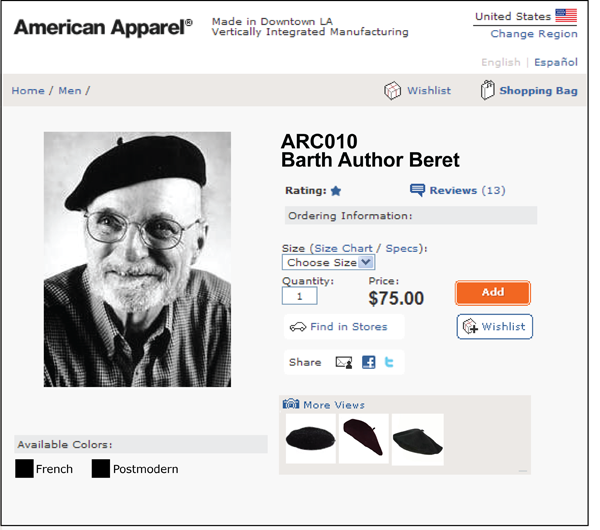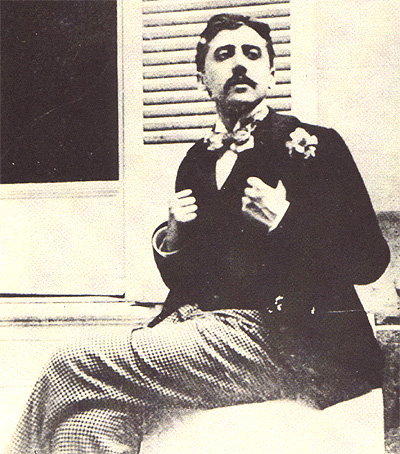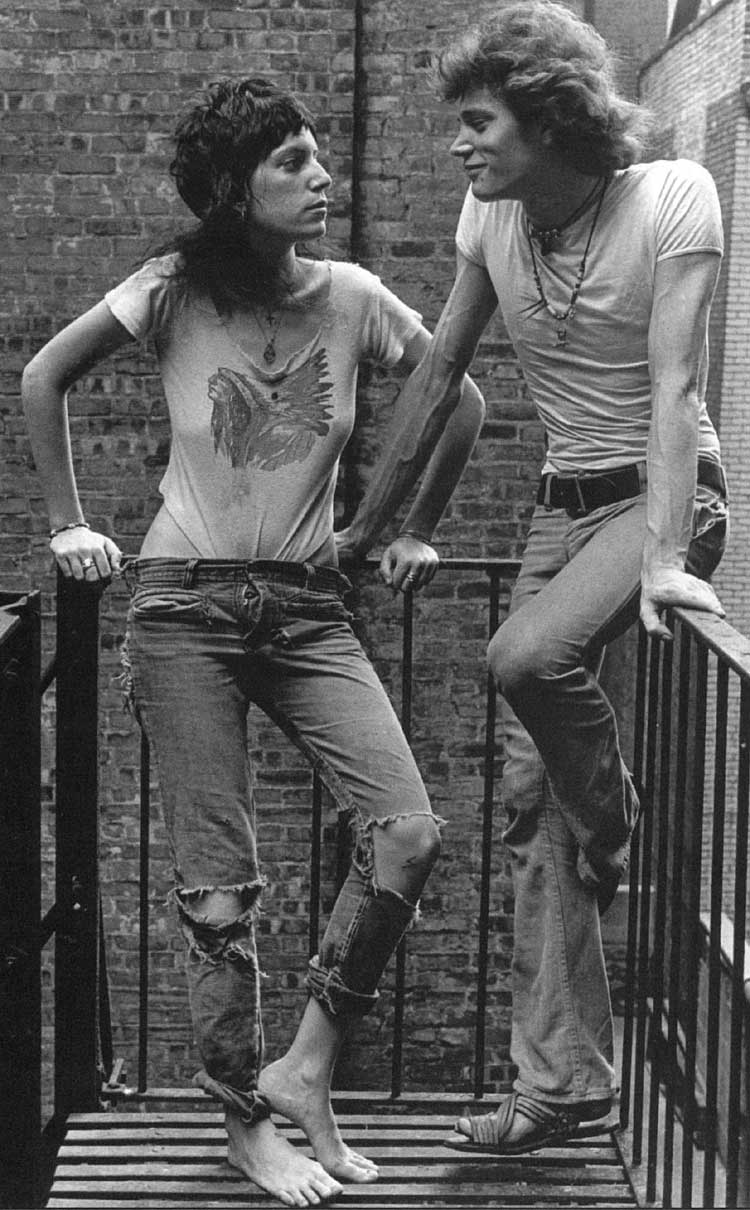A scene with Quentin
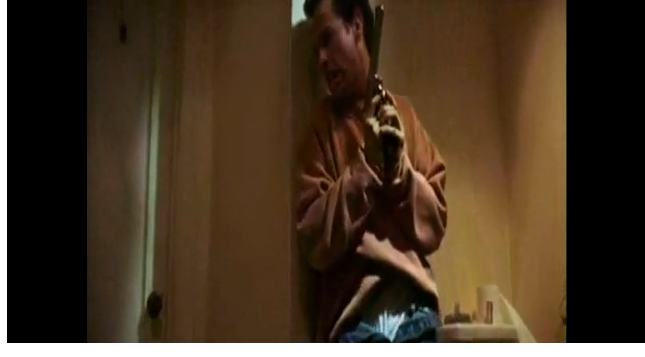
In Pulp Fiction, in what has become known as the “Divine intervention” scene, a guy hides inside the bathroom trembling under the weight of both his mortality and huge gun as he hears hit man Jules Winnfield (Samuel L. Jackson) recite Ezekiel 25:17 before he shoots a co-conspirator who embezzled Jules’ employer.
The guy in the bathroom comes blasting out of the bathroom screaming “die motherfucker,” spraying bullets which seem to go through Jules and his partner Vincent, after which the former, due to the perceived miracle, resolves to become a spiritual man. This movie is 16 years old, and I’m not saying anything new, it’s just that I saw the film again last night and noticed something very beautiful: the guy in the bathroom’s pants are unbuttoned.
“Orange Juice,” Personality, and Literature
In the third-to-last paragraph of Timothy Willis Sanders’ new book, Orange Juice and Other Stories, from Awesome Machine Press, the protagonist sees six babies lying in a fountain. Four are lying in the fountain, and two are pissing into it. “This means something,” he says. “I just don’t care what.”
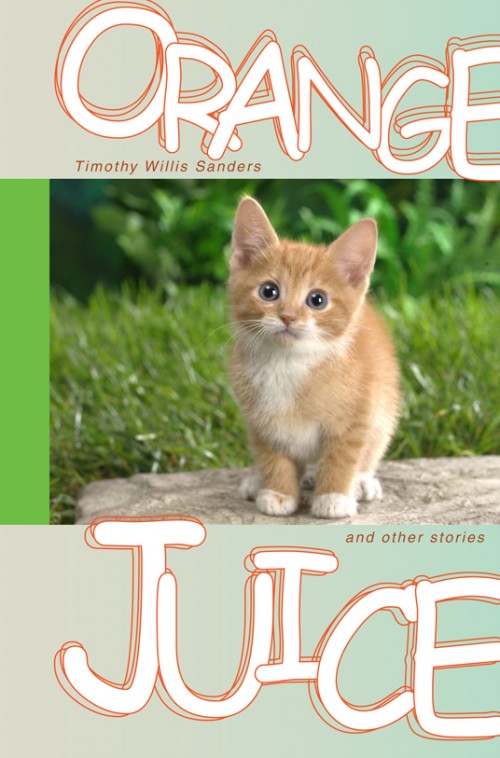 I could try to interpret what the author may have meant by placing that scene, that paragraph, those words in his book, particularly at the end of his book, but I want to point at it, nothing more.
I could try to interpret what the author may have meant by placing that scene, that paragraph, those words in his book, particularly at the end of his book, but I want to point at it, nothing more.
Orange Juice is 52 pages long and includes nine stories. The stories are very short, the style is minimalist, the language straightforward. Sanders may have been influenced by Zachary German’s Eat When You Feel Sad, as evidenced by the use of minimalist declarative sentences mostly involving actions, the consistent specifying of brand names, and the presence of characters who have names but whose external appearance and internal thoughts are mostly withheld. The characters appear through actions and words.
But this book seems to have a very different personality than German’s book. More on personality later.
It is a very subtle book. “Orange Juice,” the first and titular story, manages to suggest, in two short pages, a tense, complicated, but largely unspoken conflict between a man, Bill, his girlfriend(?), Jeanie, and Jeanie’s son, Chris. And the sentences are like this: “Bill makes a list. He highlights and underlines ‘pulp-free Minute Maid.’ Chris walks through the kitchen and Jeanie catches him by the elbow. Chris jerks free.”
November 19th, 2010 / 1:13 pm
7 bleed him poppers and coke and tell slim fey shouldn’t possibly lop at brother nervous vacation
- I didn’t even glow/know there was such a dang as “Geography Thursday.” WTS? (What the Suck?) OK, I’m game.
- Is it true you have to be removed from a location to write about it? Because that smells like dung beetle dung or someone reading A Moveable Feast while sitting in a coffee shop looking at eyes or maybe a conference answer to a hang-tongue/clam-eye question.
- Ever wrote in front of a mirror or a large window? Do tell.
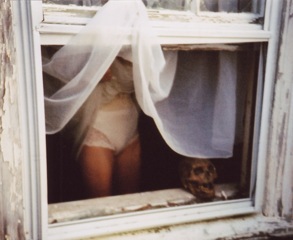
- What is Southern lit? I don’t know. You get knocked down. Black holes burnt into a map. There is moss and gonorrhea. You scramble back up but don’t know your mind. What you were was it worth reaching fer? You can’t tell your Bad Faith actions from your authentic mind. It’s all a low fog, over soybean fields and the jawbone of a deer. You get knocked down. Why scramble up for something you might hate? Why return to your own spent virus/kudzu vine? Oak limbs. Several doors, later plated in gold and writing. A speech. Your home is a hole. There are other definitions aloose I spose. I couldn’t answer. Add cathead biscuits.
- Do you like to read first at a group reading or last or not at all or more like: who cucking fares, dude?
- Ain’t many links in this post, but fuck it.
- A friend of mine in MFA/grad school said she enrolled for one reason: “To get laid.” (Her words) Is grad school a great location for getting laid? I mean more than working at Chili’s or enrolling yourself in law or culinary school? Why/why not?
- 7
Geography Thursday #14
A few years back, I attended this workshop Susan Steinberg taught, and she said something that rocked me: The only two things that are fundamental to narrative are place and conflict. Maybe I took her offhand comment too seriously, but I’ve really come to believe it. All good stories do indeed have place and conflict. They are cornerstones of narrative.
And so here I am, back at Geography Thursday, and rather than talk about place and space—two of the three big cornerstones of Human Geography, the third being scale—I will talk about neither, while discussing both.
{LMC}: On how “571 Points” could be a metaphor for online literature but is, like, not.
Here’s a confession: I look for metaphors in real life, like how maybe the way people tie their shoes under their desks represents their baser instincts, suppressed in corporate life. As a reader, writer, double-ended-candle-stick-burner, too often I look for metaphors about the effect or state or future of online literary publishing. I am a twenty-something luddite, reaching through the din of electronic narrative to find a reason not to ignore it, a reason why the ‘pages’ of the world wide web should affect me just as much as the ‘pages’ of real-life-paper-cutting-dog-ear-able books.
The first time I read Andrew Borgstrom’s “571 Points,” it disguised itself as a metaphor for internet literature. Each line translated into another answer, another echo for my interminable questions.
“We walked our final street like mathematicians writing poetry with our bare bodies.” Math! I think. Computer programming! Zeros and ones, and this website I am reading, when boiled down, stripped to its elements is all numbers, formulas, becoming poetry before my eyes. I begin to read faster as I become fluent in Borgstom’s particular language of mathematics and poetry.
“I did not purposefully hide the flyer…My subconscious purposefully hid the flyer because it hides all flyers and not because it has anything against riding in free hay.” Of course it did! I cry, how could one recognize the posters or billboards or informational tomes that really mattered if one did not allow their subconscious to consciously hide the flyers, the pop-ups, the free hay of internet activity? To steer away from the PoetryHourlyDigest or Best-Flash-Fiction-Of-the-Second email alerts.
“We searched for horseshit in the road,” he writes and I know that anyone skimming the Internet for clarity or truth or just a god-damned answer to a basic question of how-to or how-come understands this ancient quest.
“I managed to say nothing in thirty-three syllables.” Blogs! Twitter! What I write all the time without pretending it is literary while still trying to decide for myself where the line is drawn. At least he is self-aware, though? He knows he is saying nothing. Commenter 56 has no such self-awareness.
But alas, “Where had all the horseshit gone?” Now he is supplementing the percentage of cotton in her shirts–nay, supplementing the lack of venerable online writing with writing of his own, his own contribution. He is too deep in the horseshit to smell it. Or has he transformed the horseshit into manure?
“You kept adding water to dilute the flavor. We figured everything had a solution.” Water….dilute…solution. Wordplay. Satisfying. Short-lived.
Towards the end, he is eating his words. “You taught me how to spell interminable. I dog-eared the page. I ate the page.” Not the page he wrote, but that he adopted. That he learned and understood. And here I get tongue-tied. This is no metaphor. This is a racquetball court with no one’s footprints on it but everyone he has never loved. This is a super-sad-fictional-love-story. On the internet. One that has made me reach into my own needs to create within it a metaphor for what I needed to be explained the most at the moment I read it. What is more literary than that?
Talking With Vouched’s Christopher Newgent
 In her post about Barnes & Noble, Roxane Gay wrote a great introduction to this interview with Christopher Newgent about his Vouched project. She was walking around the store, saddened by the selection and (more importantly) the detachment from literature that the store promulgates. She wrote:
In her post about Barnes & Noble, Roxane Gay wrote a great introduction to this interview with Christopher Newgent about his Vouched project. She was walking around the store, saddened by the selection and (more importantly) the detachment from literature that the store promulgates. She wrote:
I walked around some more and thought about the Vouched Books project where Christopher Newgent brings his table of indie books and magazines he can vouch for to various literary/arts events around Indianapolis. There’s a lot to be said for bookselling on such a small scale. I’ve seen Christopher at work at a reading in Indy and he was never without interested people hanging around his table. People seemed really excited to be able to talk to someone about potential books and magazines worth buying and reading. One young man I saw was totally excited to learn about writers he had never heard of. I saw him walk away with like three books. As booksellers struggle with how to stay alive, I think part of the conversation should center around how we can make people feel connected to books.
That’s kind of like the dream scenario. And Christopher’s idea continues to grow. He runs a reading series, has a gang now, and as he announced in their new bi-monthly column at Small Doggies, they’re starting to run reviews (I think I have one forthcoming about that book Chris Higgs wrote). I’ve been excited about Vouched since Christopher first contacted me to order PG books. Before the project gets too big and leaves us all behind, I thought I’d throw some questions at literature’s newest Sam Walton. READ MORE >
What is Experimental Literature? {pt. 1}
I’d always intended to write this series of posts, but kept putting it off.
Until now.
First, let me begin by saying that this topic is the focus of my doctoral research work. I’ve been actively engaged in the historical and critical study of issues surrounding this topic for about seven years now. Therefore, I have a shit ton of stuff to say about it. That said, I don’t want any of these posts to be overwhelming. My goal will be to introduce a brief, digestible amount of information for your consideration. I like what Kyle and Lily have been doing with their Geography Thursdays series: brief but compelling punches of thought. Sadly, I can’t promise to maintain their consistent frequency of publication, but because I like their model I’ll try to emulate the brevity.
I want to be clear: what I have to say is meant to start conversation not conclude conversation. I hope y’all will see that my intention is to be descriptive rather than prescriptive. In other words, I will strive to identify tendencies, not truisms. I don’t believe in truth, I believe in interpretation. (God bless Nietzsche.) Thus, I do not pretend to be right; I only pretend to have ideas worth talking/thinking about.
Now then, the focus of my first post arises from a consideration of Lyn Hejinian’s concept of open and closed texts…
A REPORT: PEN USA / JAMES SALTER / PLAYBOY
I was in a thrift store buying some clothes last week and under the counter I saw a stack of old Playboy magazines. Although it’s hardly possible to be an adult in America and not have at least a passing acquaintance with hardcore pornography, I realized I couldn’t remember ever having looked inside an actual copy of Playboy. So for $5 I bought the copy on top of the stack, the June 1973 issue featuring Marilyn Cole, playmate of the year, with fiction by Joyce Carol Oates, Robert McNear, and George MacDonald Fraser (yes, the issue contains three short stories).
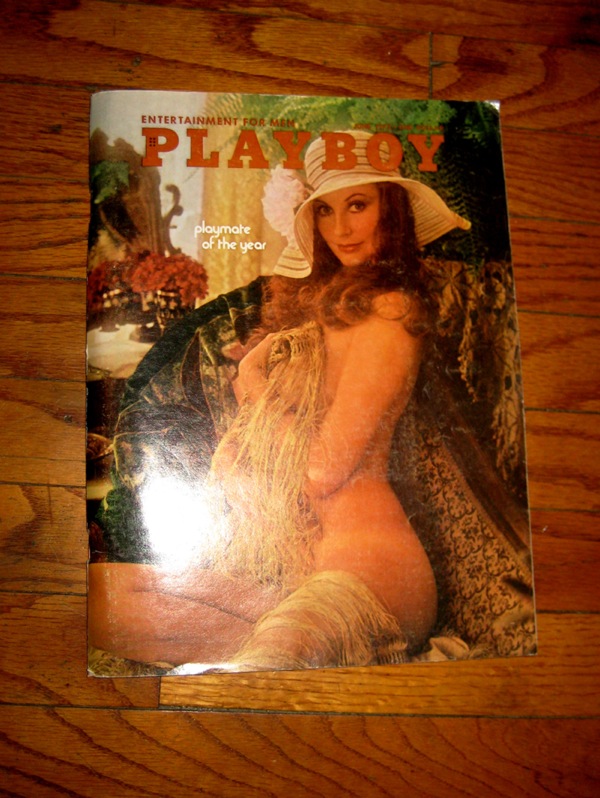
where is she now?
Congratulations Patti Smith
Patti Smith won the National Book Award. You know what this means right.
Probably it takes so long for the language of life to pry its way into literature because most writers are too busy doing that to live it. In Patti’s case of course writing was music most of the time and she was living and doing. She was a poet before she was a rock star. The same thing I think. Just different ways of doing.
My friend read the book and she thought it was great. I recommended she go to the library for some Eileen Myles. I think it will take a while to get Just Kids from the library.
Oh yeah and umm. The fuck is this?

